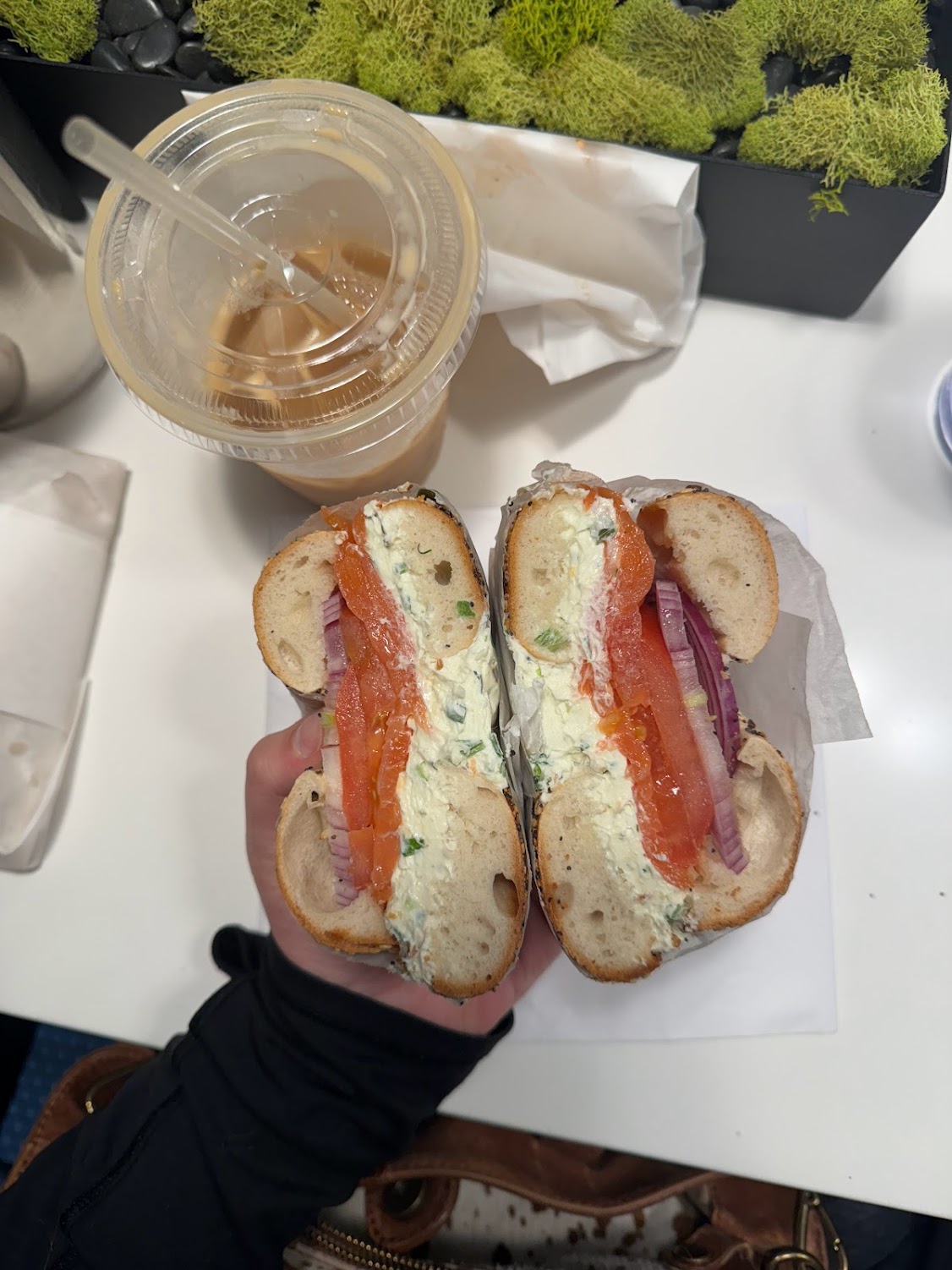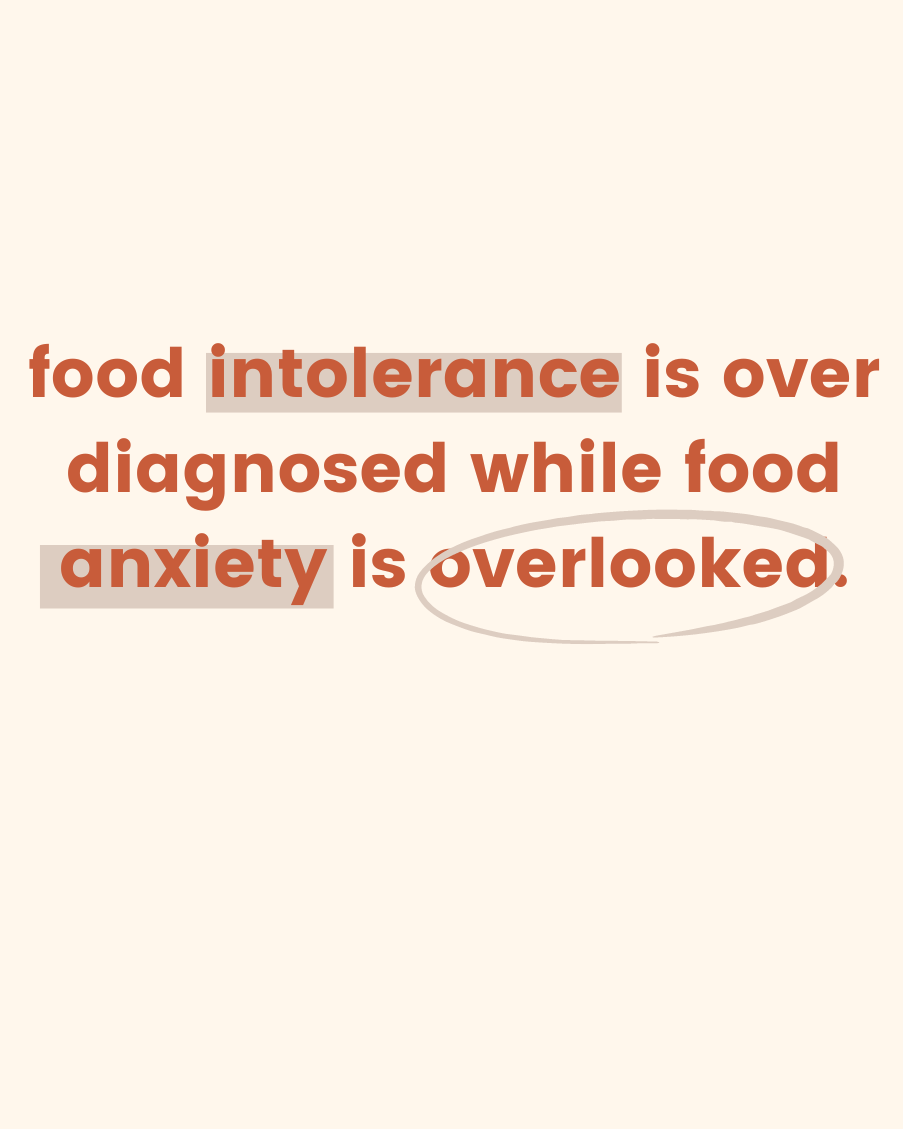how anxiety shows up as food intolerance

March 6, 2024
Food intolerance is often over diagnosed while food anxiety is overlooked.

We somatically experience food intolerances the same way we experience symptoms of anxiety. Emotions are powerful. They shape our experiences, drive us to respond and react, and viscerally show up – that’s how we know they are there. While emotions start in the brain, they absolutely don’t stay there. We aren’t really taught much about emotions with the exception of “when you’re sad you cry, when you’re happy you smile, and when you’re angry you shout.” But emotions and how they show up in our lives and in our bodies are much more complicated than that.
Especially if you have an eating disorder. People who develop or live with eating disorders often have something called alexithymia too. Alexithymia is the difficulty in recognizing and expressing one’s feelings. But just because someone has the difficulty in recognizing and expressing emotions doesn’t mean the emotions aren’t there. Do we think it’s a coincidence that 1 in 10 people will experience an eating disorder in their lifetime *and* that 1 in 10 people experience alexithymia….?
In order to move through our emotions, we have to feel them (as opposed to ignoring, minimizing, or rationalizing them)
In order to feel our feelings effectively, it’s helpful to identify them and name them
Considering these things, it is very possible and likely that individuals with alexithymia may carry *so much* emotion in their body. The inability to name the emotions causes an inability to move through them causing an emotional block up.

Coping with strong emotions is intimidating (and that’s assuming you’re comfortable acknowledging there are feelings to even cope with). It makes sense that pursuing diet changes or food restrictions may seem like the path to relief PLUS the added hope of being ‘healthier’ or thinner. It doesn’t help when diet culture is all around us encouraging these very same restrictions.
Let me be clear, food intolerances are real. Food intolerances are valid. Food intolerances and eating disorder co exist (and often do). However, food intolerances also should *not* be diagnosed before ruling out an eating disorder, disordered eating, or a history chronic dieting. Food intolerances are exacerbated by eating disorder behaviors. Malnutrition causes many of the symptoms in the graphic above too. Sitting with those thoughts, I have the urge to pause, place a hand on my heart and let a deep breath out because I am stirred. Stirred with so much compassion for how much pain an individual with these three crossovers – alexithymia, disordered eating, and food intolerances – must be in.
There is hope. Identifying, recognizing, and feeling our feelings is a skill we can learn and grow. Overcoming disordered eating patterns and replacing unhelpful core beliefs is something I do daily with clients and see *so much* healing in. Renourishing can often alleviate many gastrointestinal concerns.
What did you feel when you read that last paragraph? Was there any part of you that thought, “maybe I could feel better in my body!” or “maybe recovery is possible for me!” – message me today. I want to hear your story and hold space for you. I want to pour into you as you set foot down the path of your recovery.